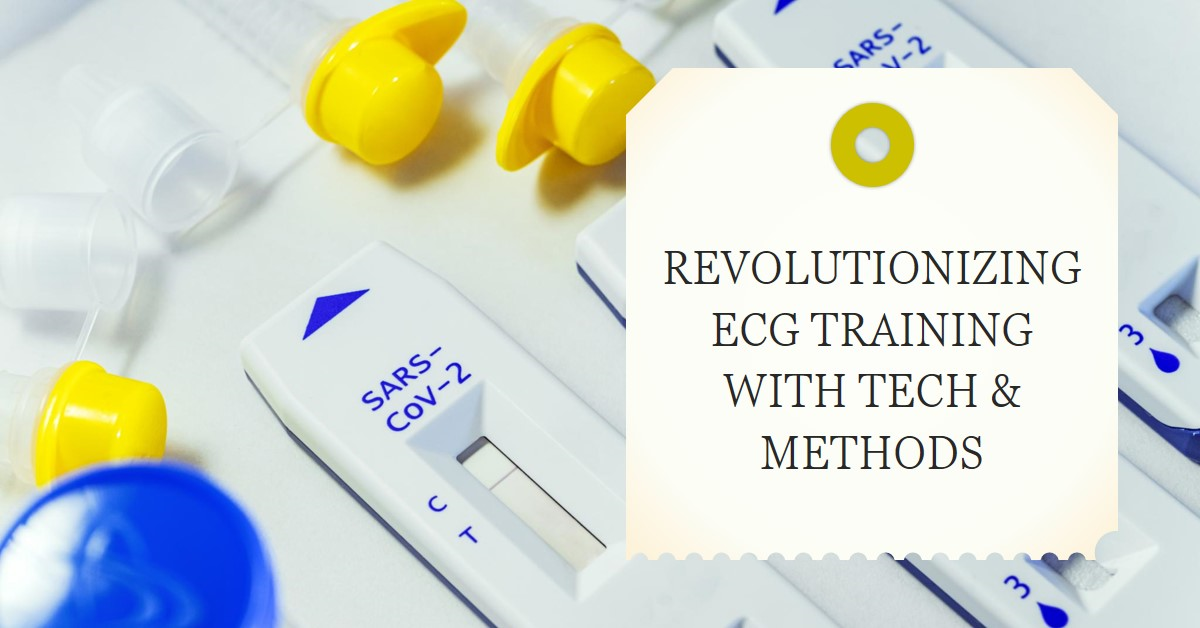ECG Training Revolution 2024: Tech & Methods

Introduction
In 2024, the field of cardiology has seen significant advancements in the training of medical students and professionals in the interpretation of electrocardiogram (ECG) tests. These developments are driven by cutting-edge technologies and innovative methodologies, reshaping the landscape of cardiac care and education. This article delves into the current state of ECG interpretation training, exploring the integration of new technologies and methodologies, and highlighting the role of Ecotown Diagnostics in offering affordable ECG tests in Bangalore.
The Shift in ECG Interpretation Training
Traditionally, ECG interpretation has been a cornerstone of medical education, requiring students and professionals to develop a keen eye for detail and a deep understanding of cardiac physiology. However, the advent of new technologies has transformed this training landscape. Virtual reality (VR), artificial intelligence (AI), and advanced simulation platforms have emerged as game-changers, providing immersive and interactive learning experiences.
Virtual Reality and Simulation
In 2024, VR and simulation technologies have become prevalent in medical training institutions worldwide. These tools offer realistic, 3D representations of cardiac function and ECG scenarios, allowing learners to visualize and interact with complex cardiac rhythms and conditions in a controlled, risk-free environment. Studies indicate that VR-based training can enhance understanding and retention of ECG interpretation skills. For instance, a 2023 study found that medical students trained with VR simulations demonstrated a 30% improvement in ECG interpretation accuracy compared to traditional methods.
Artificial Intelligence and Machine Learning
AI and machine learning (ML) are revolutionizing ECG interpretation by providing advanced diagnostic tools and personalized learning experiences. AI algorithms can analyze vast amounts of ECG data to identify patterns and anomalies, offering instant feedback and recommendations to learners. This real-time analysis helps students and professionals refine their interpretation skills and understand complex cardiac conditions better. Furthermore, AI-powered platforms can tailor educational content to individual learning curves, optimizing the learning process.
Ecotown Diagnostics and Affordable ECG Tests
In the context of these technological advancements, Ecotown Diagnostics stands out by providing affordable ECG test services in Bangalore. With a commitment to leveraging new technologies and methodologies, Ecotown Diagnostics ensures that medical professionals and students have access to cost-effective and high-quality ECG testing. This accessibility is crucial for hands-on training and for facilitating the integration of theoretical knowledge with practical skills.
The Impact of New Methodologies
Beyond technology, innovative teaching methodologies are enhancing ECG interpretation training. Flipped classrooms, peer learning, and competency-based education are proving effective in fostering a deeper understanding of ECG analysis.
Flipped Classrooms and Peer Learning
Flipped classroom models, where students study theory at home and engage in practical applications in class, have been beneficial. This approach, combined with peer learning strategies, encourages collaborative problem-solving and critical thinking, essential for ECG interpretation. Research shows that students in flipped classrooms exhibit a higher level of engagement and performance in ECG interpretation.
Competency-Based Education
Competency-based education focuses on achieving specific skills and benchmarks in ECG interpretation, rather than merely passing exams. This method ensures that medical students and professionals are proficient in ECG analysis, meeting the high standards required for clinical practice. The emphasis on competency ensures that learners can effectively translate theoretical knowledge into practical expertise in real-world scenarios.
The Future of ECG Interpretation Training
Looking ahead, the integration of new technologies and methodologies in ECG interpretation training is set to continue. Augmented reality (AR), wearable technology, and Internet of Medical Things (IoMT) are anticipated to play a significant role in further enhancing the training experience. These technologies promise to provide even more immersive and interactive learning environments, making ECG interpretation more intuitive and accurate.
Conclusion
In 2024, the training of medical students and professionals in ECG interpretation has been transformed by the advent of new technologies and methodologies. Virtual reality, artificial intelligence, and innovative teaching approaches have improved the learning experience, making it more interactive, effective, and aligned with the demands of modern cardiac care. With institutions like Ecotown Diagnostics making advanced ECG testing more accessible and affordable, the future of cardiac education and care looks promising. As we continue to embrace these advancements, one must wonder, how will these evolving technologies further shape the future of medical education and patient care?
Also know Family Caregivers’ Guide to Scan Centers – Best Practices






